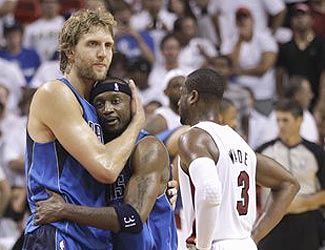You may say I'm a dreamer...
But I hope he's not the only one....
I hope someday all the leftists grow up and join us....
And the world will live as one.....
Oh, that was too easy!
Hat Tip to the Conservative Manifesto, original story appeared in the Toronto Sun.
http://www.torontosun.com/2011/06/28/lennon-was-a-closet-republican-assistant
Of course, this is confirmation of the wisdom behind the old Winston Churchill quote:
"If you aren't LIBERAL when you're 20, you have NO HEART. If you aren't CONSERVATIVE when you're 40, you have NO BRAIN."
Fortunately, many of these idealistic numb-skulls mature and get more realistic than idealistic, but there's always an Al Gore or Howard Dean (among others) that prefer to remain stubborn Pollyanna's.
Unfortunately, too many will continue to let the facts of reality get in the way of the idealistic fantasy world they have constructed for themselves.
Time (and wisdom) is on our side though.
John Lennon, a Ronald Reagan fan? Imagine that!! ROTFLAO.
The Conservative Manifesto -- In great victories, expect attacks.: Personal Assistant Confesses: John Lennon was in the Closet:
"John Lennon was a closet Republican, who felt a little embarrassed by his former radicalism, at the time of his death - according to the tragic Beatles star's last personal assistant.
Fred Seaman worked alongside the music legend from 1979 to Lennon's death at the end of 1980 and he reveals the star was a Ronald Reagan fan who enjoyed arguing with left-wing radicals who reminded him of his former self.
...
He says, 'John, basically, made it very clear that if he were an American he would vote for Reagan because he was really sour on (Democrat) Jimmy Carter.
...
'I also saw John embark in some really brutal arguments with my uncle, who's an old-time communist... He enjoyed really provoking my uncle... Maybe he was being provocative... but it was pretty obvious to me he had moved away from his earlier radicalism.
'He was a very different person back in 1979 and 80 than he'd been when he wrote Imagine. By 1979 he looked back on that guy and was embarrassed by that guy's naivete.'"
---
P.S. - BTW, This phenomena is not in any way limited to John Lennon. We have seen in the past where artists such as Prince and Bruce Springsteen have espoused liberal, spread the wealth policies with OPM (Other Peoples Money) but kept as much of the product of their own personal labor as they can. I have nothing against that, it's the American Way, just noting the apparent hypocrisy.
We also see the contradictions on college campuses:
http://slavieboy.blogspot.com/2011/04/brilliant-video-liberal-college.html
Yesterday, I heard a local ESPN jock relating a story about how a Chicago panhandler demanded (and they don't ask anymore, they demand) that he buy him a sandwich inside a local Subway shop. So being the nice, concerned citizen he is, this DJ agreed to buy the guy a meatball sub. As the order was being processed, the vagrant told the dude he also wanted a Diet Coke and a cookie, in addition to the sandwich. The guy claimed he drew the line and said 'No, I said I'd buy you a sandwich, that should be enough'!!
It struck me as ironic, because this guy is a strident Obamanomics, spread-the-wealth acolyte publicly, but from the nexus of the story, appears to harbor some latent Tea-Party philosophies deep down inside. Welcome to OUR WORLD, dude!!! Once again, ROTFLAO!!!

























